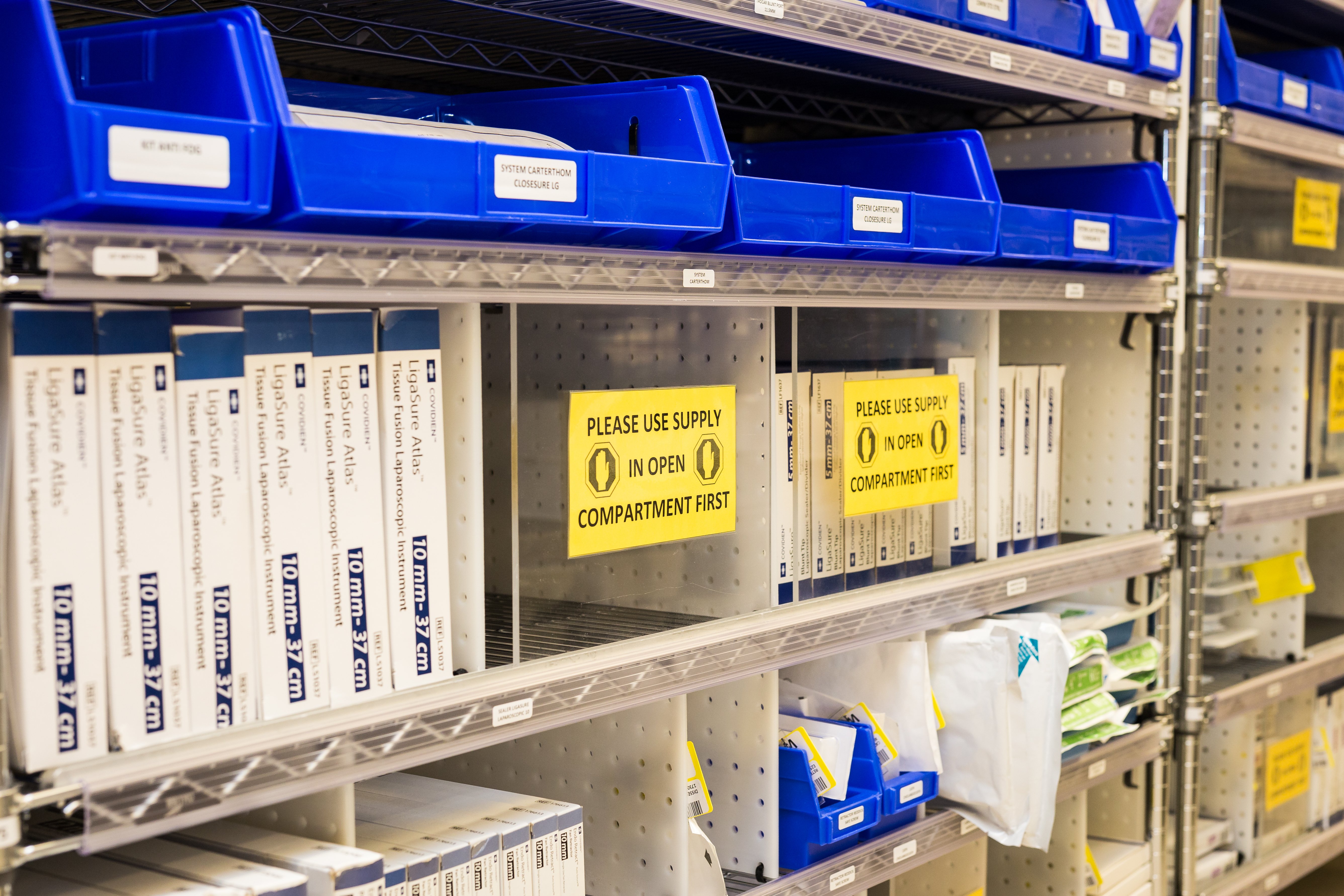
Long Beach, California, manages 40% of the nation's cargo containers entering. At the end of 2021, bottlenecking led to nearly double the amount of cargo ships waiting to dock compared to 2020.
Supply chain issues have affected every industry, including healthcare. Healthcare supply chain solutions have become necessary to keep hospitals running efficiently and providing excellent patient care.
Provided below, we have a must-read guide for your supply chain operations. In this article, we will go over unique inventory problems for hospitals and how you can start implementing supply chain solutions today.
Hospital Supply Chain Problems
Global supply chain disruptions have driven prices for necessities higher and caused mass shortages. Healthcare supplies are no exception, and experts predict that global supply chains won't start returning to normal until at least 2023.
The healthcare supply chain has unique issues regarding manufacturing, shipping, and stocking health supplies. Numerous independent stakeholders play a crucial role in receiving supplies for your clinic or hospital. This process typically includes:
- Manufacturers
- Insurance companies
- Federal regulatory agencies (e.g., FDA)
- Providers
- Hospitals
- GPOs (Group purchasing organizations)
Stocking supplies is a lengthy operation, requiring cohesive working relations with multiple organizations and stakeholders for seamless downstream distribution. Other issues plaguing hospital supply chains are:
- Hoarding
- Inaccurate inventory data
- Outdated inventory technology
- Lack of hospital supply chain analytics
Systems tracking and improved analytics won't solve global supply chain issues. However, it will help reduce costs and improve the overall efficiency of your company's healthcare supply chain.
Supply Chain Solutions
Supply chain solutions start with developing a resilient inventory system. Here are four foundational guidelines that you should base your new or updated inventory system:
- Accurate and personalized hospital data
- Automated inventory management
- Outsourcing multiple suppliers (including local)
- Mutual collaboration between competitors
Resilient supply chains can help you combat current inventory struggles. It will also help you plan for future emergencies and ensure best practices for your healthcare facility.
1. Improving Hospital Data
Up-to-date hospital data and tracking starts with supply chain analytics. Recent data showed that 99% of hospitals had challenges garnering enough inventory supplies. Eighty percent sought new suppliers!
Private hospitals and clinics aren't the only ones struggling.
At the end of 2021, the FDA reported that 109 drugs were listed as shortages. Improved analytics can avoid hoarding critical supplies and plan for future influxes or shortages. BlueQ Analytics and SmartScan manage your inventory and integrate with most ERP systems.
Here is a more comprehensive list of how BlueQ Analytics provides more than traditional ERP dashboards:
- Spend and volume reports
- Warehouse reports
- Sourcing and procurement
- Pars management reports
- Accessibility on multiple devices
- Detailed item inventory
- Stock/bin rotations
- Predictive surplus or stock-out analytics
- Labor/time management
- Data bin sizing
- Optimization reports
- And more
BlueQ Analytics is reliable, user-friendly, and scalable. Using smart technology, this analytics software can save you money in the long term and reduce labor-driven inventory checks.
2. Automated Inventory Management
BlueQ SmartScan is the easiest way for you to automate inventory. SmartScan automatically tracks ordering, receiving, warehouse inventory, and procedural steps from an easy-to-use hand-held device.
It aggregates spending data, manages bin systems, and automates re-supply orders. SmartScan provides real-time data on labor and route time management, inventory cycles, and returns.
3. Using Multiple Suppliers
Unfortunately, relying on one source for your hospital supplies is not reasonable and can be unreliable. Sluggish manufacturers, limited ground transport, and high inflation rates can delay your inventory.
Instead, develop local supply company relations and broaden your contracts with other manufacturers. This will help you procure emergency supply plans and help you source locally if the need arises.
4. Mutual Collaboration
Other hospitals and clinics are not your competition in this regard. Horizontal collaboration helps share important data and information that helps all within the industry. It provides support and cost-effective solutions that everyone can benefit from.
Avoiding Future Supply Chain Issues
Nearly $765 billion is lost each year on never used drugs and hospital supplies. Many unused supplies expire and are not safe for patient use and are thrown out to make room for other necessary supplies. Wasting time, money, and space.
Bin rotation and intelligent technology help you rotate through items, prevent unused supplies from expiring, and save on long-term costs. While innovative bin management is one way you can avoid future supply chain issues, here are some other helpful tips:
- Manage physician preferred items (PPI)
- Reduce unnecessary spending
- Renegotiate supply contracts
Additionally, take time and review which items expire most frequently and use patient metrics to learn trends in hospital admissions. Talk to nursing staff, surgeons, and other employees about trends they notice and collaborate as team members on reducing unnecessary costs.
What Is Supply Chain Consulting?
Supply chain consulting is a service that provides you with professional and cost-friendly solutions to your supply chain issues. Whether you don't have the time to evaluate your inventory and supply versus demand problems, or you want a second set of eyes on the situation, supply chain consulting helps with:
- BlueQ implementation
- Introducing new methodologies
- Map long-term goals
- Improve upon current processes
Expert consulting through BlueBin has saved hospitals $80 million and counting through our user-friendly and efficient inventory technology.
Navigating Challenging Hospital Supply Chains
Have you wondered which supply chain solutions your company can benefit from? Many hospitals have fallen victim to the lack of crucial equipment needed for quality patient care.
The process starts with looking at current manufacturing and supply contracts. It trickles down to your inventory system and technology use. How your staff checks out inventory also affects shortages.
BlueBin helps transition your hospital's supply chain issues. Whether you need consulting or BlueBin solutions, we have you covered. Contact us today and learn more!